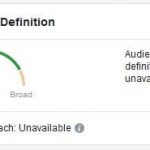Cambridge Analytica’s Nix Hoped To Sell His Company To Ad Agency WPP
Alexander Nix, the now-suspended CEO of Cambridge Analytica, carried in his briefcase a Thermos bottle full of snake oil even bigger than that peddled by Theranos CEO Elizabeth Holmes. While the disgraced executives are in completely different businesses, they both were obsessed with touting a new technology–and making deals based on its purported genius–before it was actually proven to work.
Nix, who sources say liked to call himself a “Bond villain,” had a master plan. He wanted to use the publicity from Cambridge Analytica’s association with the Trump campaign to win new clients for the firm’s commercial marketing and advertising units. He believed that after the firm won contracts with advertising giant WPP and Coke, he could then approach WPP CEO Martin Sorrell and sell him the company, a source with knowledge of the matter tells me. Nix said he knew Sorrell, a fellow Londoner, and said he had talked to Sorrell about selling him his company, says this source.
But for much of Cambridge Analytica’s history, the company’s marquee offering–a data platform that used behavioral micro-targeting models to target voters and consumers–worked only in Nix’s sales presentation, not in real campaigns, sources close to the company tell me.
After the Trump campaign ended, Nix pitched both WPP and Coke on its behavioral microtargeting platform and models, and WPP ended up working with Cambridge Analytica on a pitch for the U.S. Army account, AdAge reports. But ultimately neither Coke nor WPP signed on as Cambridge Analytica clients. One executive from WPP insisted to Fast Company that Sorrell did not know Nix.
In a statement, a spokesperson for WPP said: “Cambridge Analytica were involved in a pitch process with WPP as a potential sub-contractor, but are no longer part of our engagement with the client.”
Ripon Rip-off
Nix’s product was a voter data platform called “Ripon,” in essence a giant information warehouse that holds all kinds of data sets showing different facets of a voter’s identity. It contains the voter file, which includes all kinds of demographic data, voting history, and party affiliation. That data is supplemented by other third-party data sets including everything from credit bureau data to magazine subscription histories to Facebook likes. From this platform, data scientists create models showing which voters might be persuaded to vote for Candidate X, and what kind of messaging might be needed to persuade them.
The major selling point of Cambridge Analytica’s Ripon platform was its “behavioral microtargeting,” a type of voter modeling that relied on Facebook data to uncover voters’ political proclivities. Nix said the technique could reveal hidden fears and anxieties in voters–things the voter him or herself may not even realize–that could, with skillful messaging–be translated into political action.
It was Nix’s smooth-talking sales presentation of Ripon that prompted the Ted Cruz campaign to retain Cambridge Analytica in the summer of 2015. But the campaign would soon find out that Ripon was an unfinished and inoperable platform, and ended up paying Cambridge Analytica a lavish monthly fee to finish it. The Cruz campaign reportedly didn’t use Cambridge Analytica’s behavioral microtargeting models, relying instead on more traditional data sources.
Despite Nix’s claims that Cambridge Analytica played a central role in targeting ads for Trump, the behavior microtargeting models were never used in that campaign either, a person close to the situation told me. The Facebook data that Cambridge Analytica had acquired through a third party (Cambridge University professor Aleksandr Kogan) was, according to the person, kept on a server at the firm’s London headquarters–on the other side of a firewall from the Project Alamo data platform used by the Trump campaign.
The data was still on that London server as of June 2016, a source with knowledge told me, but was supposedly deleted from the server well before the November election.
The person who ran Trump’s data operation, digital director Brad Parscale, has said publicly that Cambridge Analytica had little to do with Trump’s electoral college victory in November 2016. Responding to a Cambridge Analytica tweet claiming credit for the Trump win, Parscal tweeted: “So incredibly false and ridiculous.” He called the firm’s claims “an overblown sales pitch.” A source who knows both men said Parscale and Nix “hated each other.”
One data scientist who heard Nix’s sales presentation in 2015 said the ex-CEO was very polished and persuasive. But when he asked Nix for permission to test the Cambridge models against some known benchmarks on one state’s worth of voters, Nix declined.
Nix later told the source that he knew full well the shortcomings of the platform and behavioral models, and intended to keep trying to sell them. “I’m going to make it work,” he said. “We’re going to ride this to the end.”
Cambridge Analytica has named a new acting CEO, its chief data scientist Alexander Tayler, who issued a statement on Friday: “I am sorry that in 2014 SCL Elections (an affiliate of Cambridge Analytica) licensed Facebook data and derivatives from a research company (GSR) that had not received consent from most respondents. The company believed that the data had been obtained in line with Facebook’s terms of service and data protection laws.” He dismissed the claims of Cambridge’s ex-contractor Christopher Wylie, confirming that none of the Facebook data was used by either the Cruz or Trump campaigns.
Tayler also announced that his company has asked “a third party” firm to conduct an audit to verify that the controversial Facebook data has now been completely deleted from the Cambridge Analytica servers.
Cambridge Analytica and Nix did not respond to a request for comment.
Nix, meanwhile, has been called back by the British Parliament, and asked by the U.S. Congress, to explain himself and answer plenty of questions about his old company.
(20)














